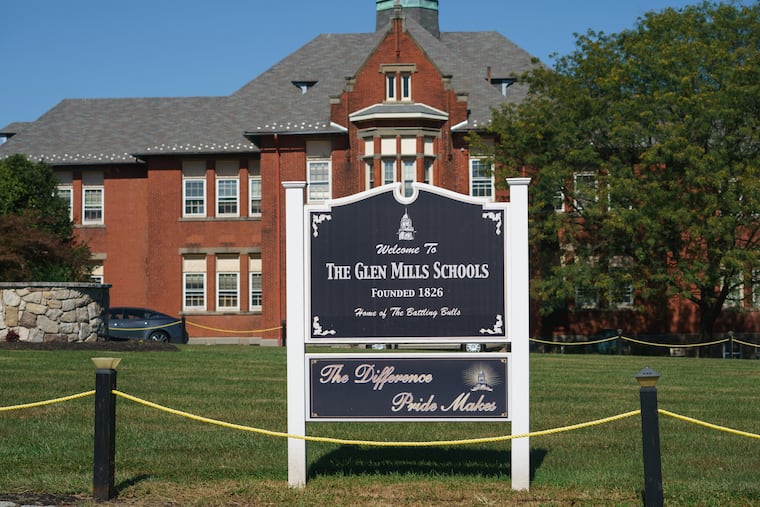Glen Mills Schools seeks to reopen under a new name two years after child-abuse cover-up scandal closed it
The disgraced reform school submitted a new application to operate as The Clock Tower Schools. Lawmakers and advocates are already calling on the state to reject the application.

The Glen Mills Schools — the oldest existing reform school in the United States until it was shut down in 2019 after a child-abuse and cover-up scandal — is seeking to reopen under a new name.
In June, an entity called the Clock Tower Schools formed with the mission of running an educational program for court-ordered boys. The state incorporation filing listed a familiar address: Glen Mills’ sprawling 800-acre campus in Delaware County.
Three months later, in September, Clock Tower quietly submitted an application for a new license with the Pennsylvania Department of Human Services — the same agency that shut down the prestigious reform school after a 2019 Inquirer investigation revealed decades of systemic abuse and cover-ups.
Lawmakers and youth advocates are already calling for the state to reject the new application. Officials say no decision has been made.
“As with any applicant, DHS conducts a review of the application materials, conducts a site visit, and performs additional investigation if necessary,” said state DHS spokesperson Ali Fogarty. “There is no timetable for a decision, and the application will be thoroughly reviewed to assess the applicant’s ability to safely and appropriately operate a residential program.”
Much remains unclear about the rebrand from Glen Mills to Clock Tower — likely an allusion to the massive timepiece that sits atop the main campus building.
Jeff Jubelirer, a spokesperson retained by the school, confirmed the application to DHS but declined to answer The Inquirer’s questions about who will lead the school, serve on its board and what changes or reforms have been made since the scandal erupted.
“We look forward to hearing from DHS,” Jubelirer said in an email. “Should DHS grant a license we can revisit your specific questions.”
Neither Clock Tower nor Glen Mills appears to have a website online at the moment, and Glen Mills’ last publicly available 990 filing is two years old. The spokesperson declined to provide the most recent year’s filing to The Inquirer.
What’s clear is that the school has been busy courting state officials since its closure two years ago. Glen Mills paid more than $160,000 on lobbying efforts between April 2019 and September 2021, according to disclosure records filed with the state. Clock Tower has not reported any lobbying activity.
Founded in 1826 as the Philadelphia House of Refuge, Glen Mills long held distinction as the oldest school for delinquent boys in the country.
The institution drew court-ordered placements from across the country and netted more than $40 million in annual revenue, largely from taxpayers. Philadelphia, which accounted for about 40% of Glen Mills students, paid $52,000 per year for each boy it sent to the suburban campus.
Two years ago, an Inquirer investigation exposed a decades-long pattern of abuse, in which counselors violently attacked boys for minor misconduct and then coerced the youths into staying quiet.
Staff monitored their phone calls and encouraged them to lie about their injuries, the paper reported. Leaning on the school’s prestige, staff also told boys that reporting assaults to the state would get them sent to worse placements — and school leaders turned a blind eye to it all, the paper found.
» READ MORE: Beaten, then silenced
Within weeks of that reporting, juvenile courts across the country pulled their boys from the campus, the Delaware County district attorney launched a criminal investigation, and the state DHS shut down Glen Mills for the first time in nearly two centuries, saying the systemic nature of the abuse warranted locking the doors for good.
In the wake of the scandal, Gov. Tom Wolf also announced an overhaul of the state’s licensing process and convened a task force to conjure up ideas on how to fix the juvenile justice system, which recently released a 64-page report with dozens of recommended reforms.
But advocates and lawmakers are questioning how much has really changed — and whether those changes warrant a second chance for Glen Mills under a new name.
Laurie Dow, the vulnerable-youth policy director at the Philadelphia child-advocacy group Children First, said the state needs to shine more light on the application process.
“I don’t think any kid should go back to Glen Mills, but if the horse has left the barn, then I think there definitely needs to be more transparency about what needs to be done,” Dow said.
» READ MORE: How Pennsylvania failed to protect boys from abuse at Glen Mills and other state-licensed juvenile programs
Philadelphia City Councilmember Helen Gym, who sat on Wolf’s juvenile justice task force, said transparency alone won’t cut it. She said the state has not taken sufficient action to correct the problems at both Glen Mills and other residential youth facilities that have harbored abuse in recent years.
“It would be unconscionable for the state to approve the reauthorization of Glen Mills at this time,” Gym said. “We know the damage that’s been done … but there has never been a full investigation and public accounting of what actually happened.”
Wolf’s office said it is working to update DHS licensing regulations and enact other reforms, some of which require legislative approval.